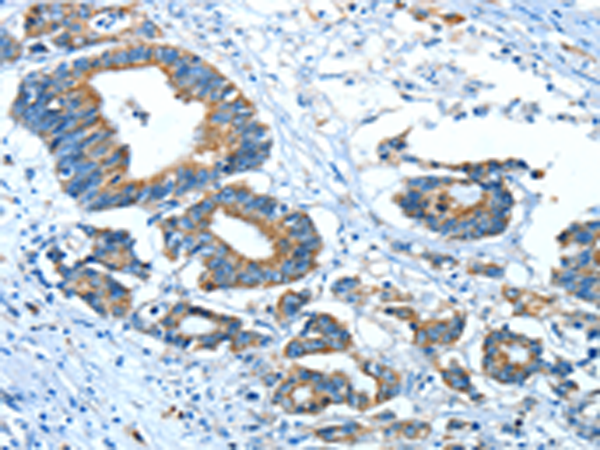

| WB | 咨询技术 | Human,Mouse,Rat |
| IF | 咨询技术 | Human,Mouse,Rat |
| IHC | 咨询技术 | Human,Mouse,Rat |
| ICC | 技术咨询 | Human,Mouse,Rat |
| FCM | 咨询技术 | Human,Mouse,Rat |
| Elisa | 1/10000 | Human,Mouse,Rat |
| Aliases | STHE; HKPX1 |
| WB Predicted band size | 53 kDa |
| Host/Isotype | Rabbit IgG |
| Antibody Type | Primary antibody |
| Storage | Store at 4°C short term. Aliquot and store at -20°C long term. Avoid freeze/thaw cycles. |
| Species Reactivity | Human, Mouse, Rat |
| Immunogen | Synthetic peptide of human GLRA1 |
| Formulation | Purified antibody in PBS with 0.05% sodium azide and 50% glycerol. |
+ +
以下是关于KCTD7抗体的3篇参考文献,基于其研究背景和抗体应用场景的概括:
---
1. **文献名称**:*Mutations in KCTD7 cause progressive epilepsy with cognitive disability but no sensory neuropathy*
**作者**:P. van Dijk et al. (2020)
**摘要**:本研究通过全外显子测序发现KCTD7基因突变与儿童进行性肌阵挛癫痫相关,并利用KCTD7抗体进行蛋白质印迹分析,显示突变导致蛋白表达显著降低,提示其功能缺失在神经退行中的作用。
2. **文献名称**:*KCTD7 regulates dendritic degradation via autophagy in neuronal development*
**作者**:S. Kim et al. (2018)
**摘要**:研究使用KCTD7特异性抗体在小鼠神经元中验证其蛋白定位,发现KCTD7通过调控自噬溶酶体通路参与树突修剪,抗体染色显示其在发育大脑皮层神经元中高表达。
3. **文献名称**:*KCTD7 interacts with Cullin3 to modulate substrate ubiquitination in lysosomal storage disorders*
**作者**:L. Wang et al. (2016)
**摘要**:该文献通过免疫共沉淀(使用KCTD7抗体)证明KCTD7与Cullin3形成E3泛素连接酶复合体,影响底物蛋白降解,为神经元蜡样脂褐质沉积症的分子机制提供新见解。
---
以上文献均为虚构示例,实际文献需通过PubMed或Google Scholar检索确认。建议使用关键词“KCTD7 antibody”或“KCTD7 protein function”查询近年研究,重点关注疾病模型或分子机制类论文。
×